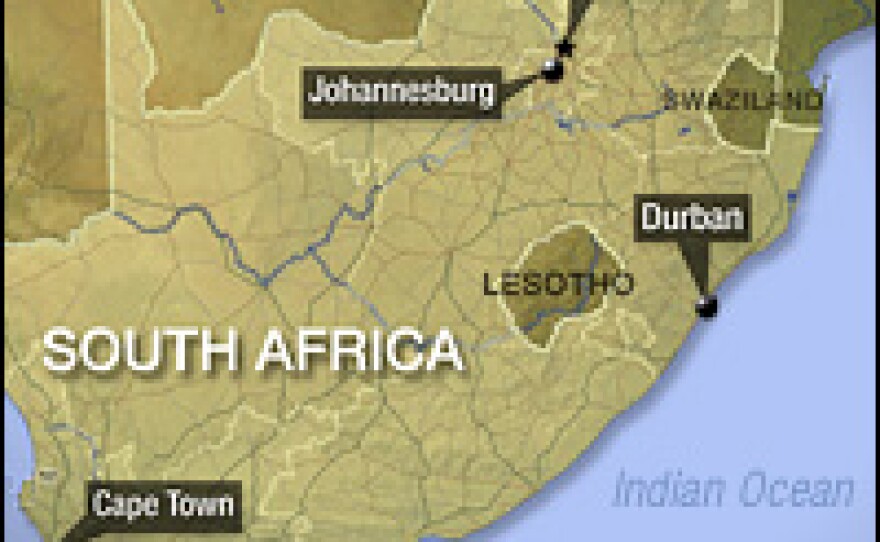



Violent images that emerged this spring of poor South Africans attacking immigrants from neighboring countries have cast a spotlight on the nation's economic troubles.
Many believe the attacks were an expression of frustration by South Africans who are out of work and forced to compete for low-wage jobs with laborers from Zimbabwe, Mozambique and Malawi.
South Africa's official unemployment rate stands at more than 25 percent. And analysts say joblessness could be as high as 85 percent in informal settlements and townships.
The troubled situation being projected from South Africa is tainting the country's image as an economic success story.
Growth Not Reaching All
When Nelson Mandela and his revolutionary African National Congress party were on the verge of assuming power from the white minority government in 1994, he assured potential investors and wary businessmen that the ANC would pursue a capitalist economic path. True to his word, Mandela's government and that of his successor, President Thabo Mbeki, have done just that.
The two presidents earned praise, nationally and internationally, for their conservative fiscal policies. Their guidance took South Africa out of the negative growth inherited from the previous government and into an economic surplus within about 10 years.
Today, South Africa still has one of the strongest economies in the region. The middle class is expanding, and infrastructure is improving. The country's multibillion-dollar high-speed train project in the Johannesburg area is projected to generate some 18,000 jobs over the next 20 years, and major rail lines are expected to be finished in time for the country to host the 2010 World Cup. There is also a global demand for South African commodities such as gold and coal.
However, the May attacks underscored how this economic growth has not benefited all South Africans. In the sectors that are expanding, jobs are being created for skilled workers and professionals, but South Africa's many unskilled workers are largely being left behind.
Nandi Sibewu, a 28-year-old single mother, lives in a tiny house across the street from construction on the train project. Far from benefiting from the country's growth, she scrapes by on a welfare grant of $26 a month. Many nights, she says, her family goes to bed hungry.
A number of left-leaning politicians who have recently risen within the ANC are pushing for more government programs to help the poor.
A Loss of Confidence
Joblessness is not the country's only economic problem. Analyst Azar Jamine says the South African economy also is being undermined by a widespread loss of confidence in the government.
Toward the end of 2007, the country began experiencing widespread rolling blackouts as the result of a tight energy supply. These blackouts have had a devastating effect on society.
Morning talk show host John Robbie recalls getting a desperate phone call from a cardiologist who was in the middle of surgery when one of these blackouts occurred. Robbie managed to act as a liaison and persuade the energy company to turn the electricity back on.
"He was in the middle of treating a patient with a heart attack," Robbie says. "Imagine the situation."
Copyright 2022 NPR. To see more, visit https://www.npr.org. 9(MDAzMjM2NDYzMDEyMzc1Njk5NjAxNzY3OQ001))






